At the end of the first project year (which was fully devoted to our preparation for the implementation of our activities since they had to be postponed due to the CoVid19 pandemic), the coordinating school took the initiative to demonstrate the methodology for the peer-teaching of our languages to the teachers from the partner schools.
The demo lesson had to be adjusted to the demand for distant communication; which was a welcome challenge for the suggestopedic teacher trainer who organised this activity. It was a 3,5 -hour lesson of Modern Greek for zero beginners delivered synchronously online on two consecutive days; on the first day the participants in this demo were demonstrated the Suggestopedic Introduction for 1,5 hour during which they were actively engaged in a conversation in Greek encouraged by the two peer-teachers, Stavriana Soubassi (EFL teacher at the coordinating school and teacher trainer in Suggestopaedia) and Konstantinos Vlachos (Modern Greek teacher and trainee teacher in Suggestopaedia). One of the elements of Foreign Language Suggestopaedia being the suggestion of a scenario associated with the culture of the target language, the teachers introduced themselves using new identities (Stavriana as Penelope, the wife of legendary Odysseas = Ulysses and Konstantinos as a tour guide, her friend) and asking the group of learners for help to find the traces of Odysseas around the world.
They used visual prompts and didactic songs and charts to stimulate communication. All the above were included in a Slides Presentation Introduction to the Greek demo lesson In this way, they practised speaking the new language without being consciously aware of making an effort to learn it. Below are the screenshots of just a few of the communicative instances included in the video recording of the INTRODUCTION.
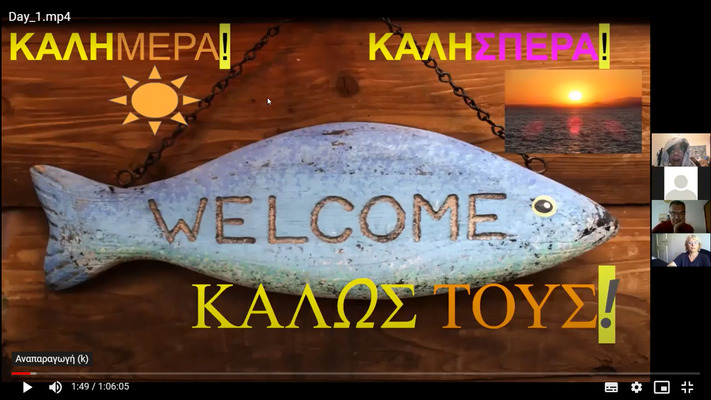
After being welcomed and practising greeting in Greek, the learners were introduced to the scenario and encouraged to sing along the didactic "Song of Odysseas" to practise the verb TO BE.
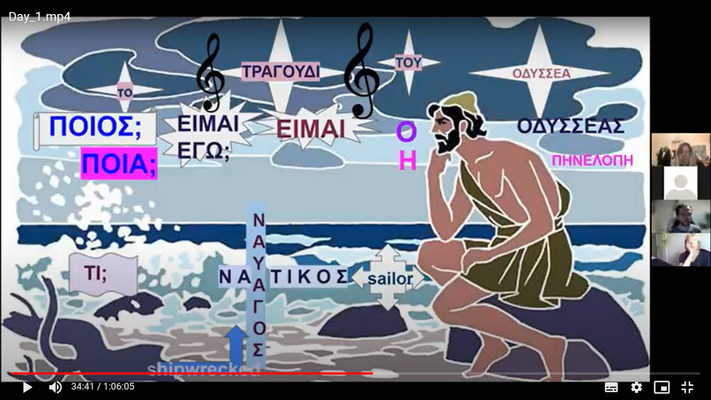
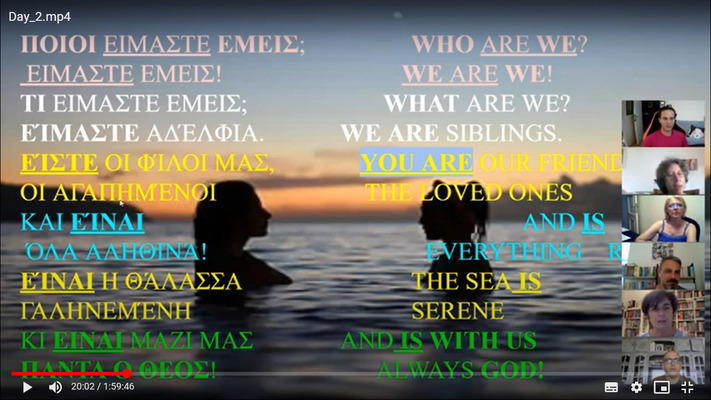
Then, they searched the world for Odysseas and his boat
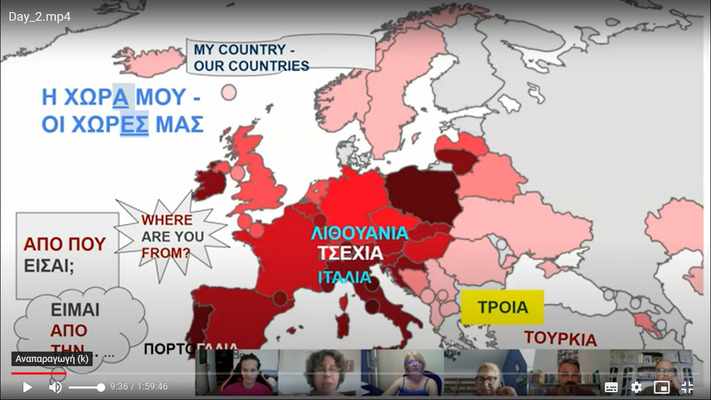
and were given the opportunity to practise saying "I am + their nationality" and "I speak + their mother tongue".
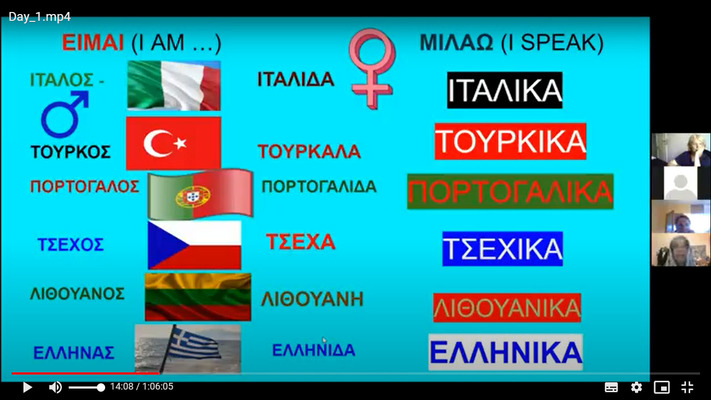
At that moment, they were stimulated to read some Greek words whose meaning is internationally understood. All they had to do was read the words with the help of the visual aids provided to memorise the sound of the unfamiliar letters!
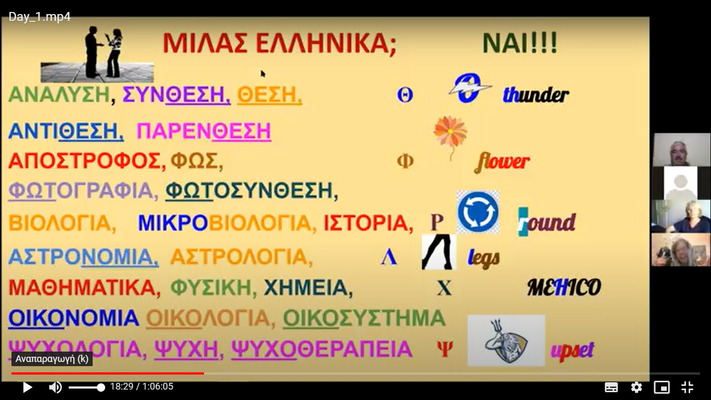
They practised talking about their likes and dislikes prompted by the poster below (and a few more)
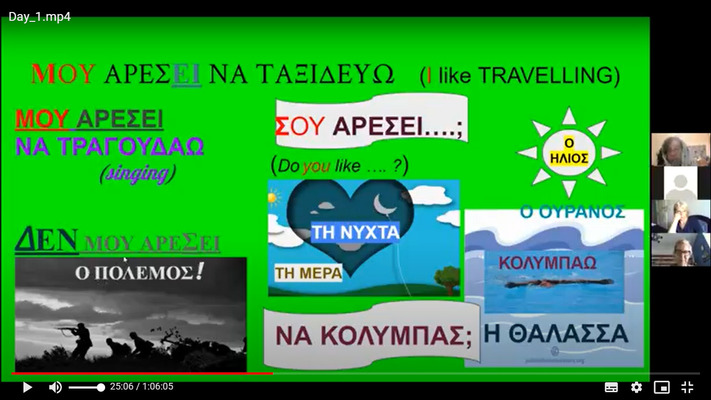
They were offered some suggestions in order to talk about their interests.
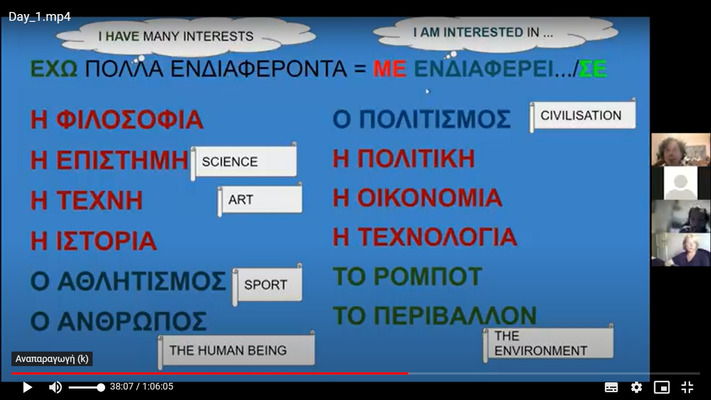
Eventually, they were suggested the idea of visiting Greece and acting at the classical theatre in Epidaurus.
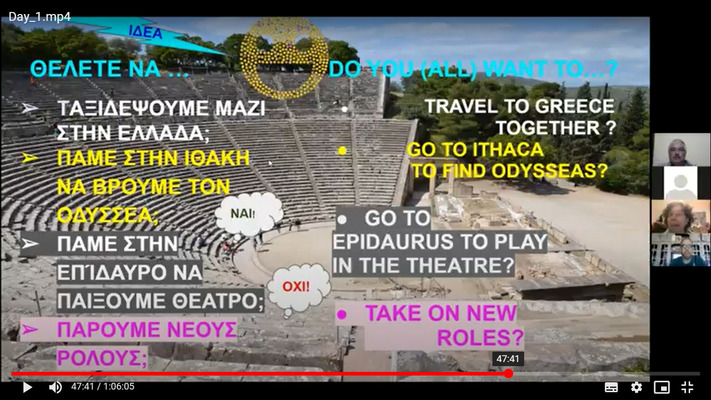
taking on new identities (which will serve the pedagogical purpose of accelerating their speaking progress) by choosing a new name and surname in Greek
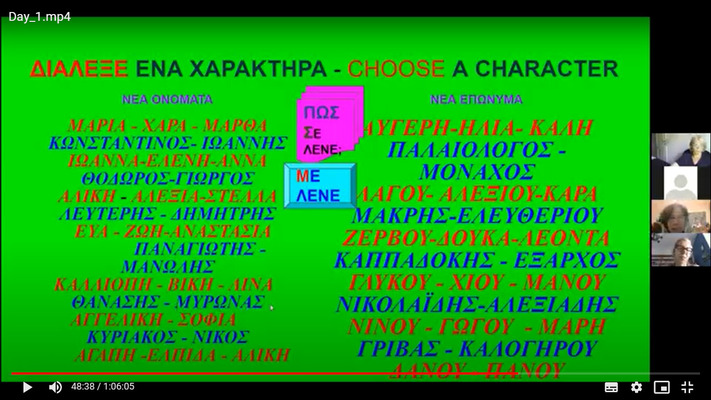
as well as a new profession!
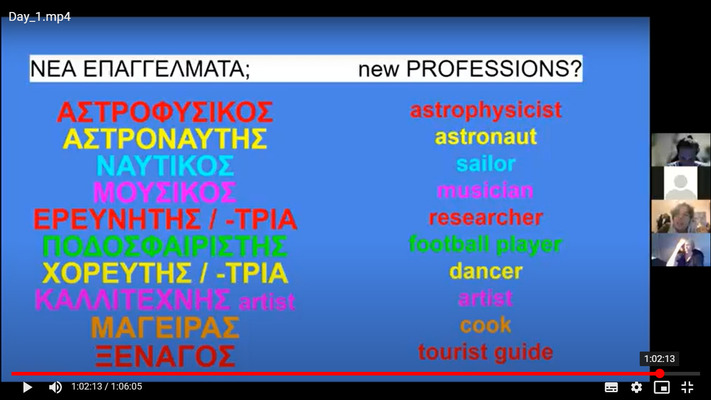
At the end of this short intro, they could each respond to the urge of making arrangements for their next meeting!
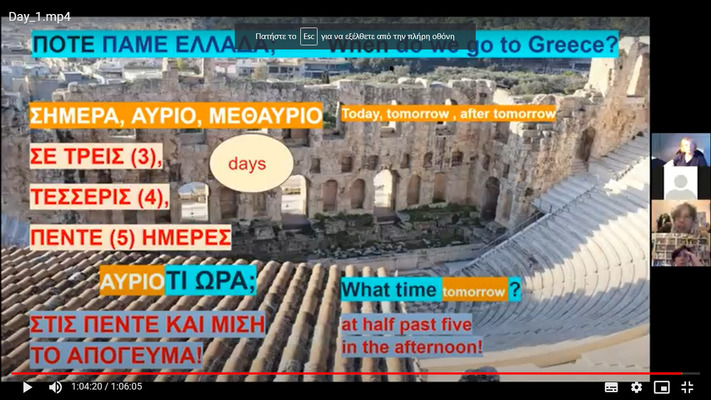
On the second day for artistic and communicative elaboration of the input they were exposed to on the previous day (watch the video recording linked above), the teachers gave the suggestopedic sessions (first the melodrama or recital and then the concert) to the background of music (classical and preclassical respectively) to facilitate the learners in decoding the linguistic signs contained in the extract of the suggestopedic textbook or libretto "The Greek Logos".
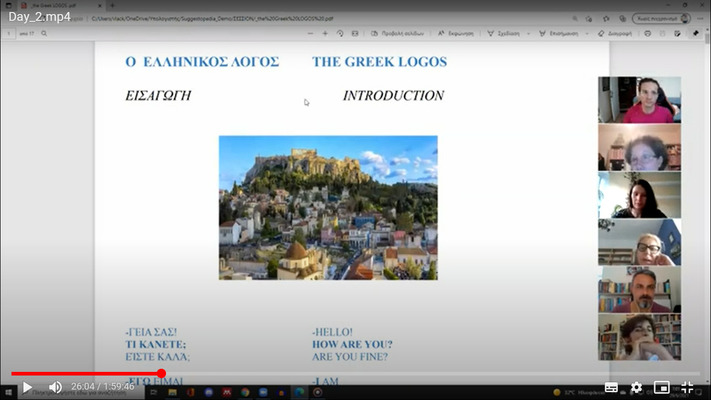
Afterwards, the learners read the libretto together with the teachers in two ways: by repeating the lines in chorus in order to practise pronouncing the new language
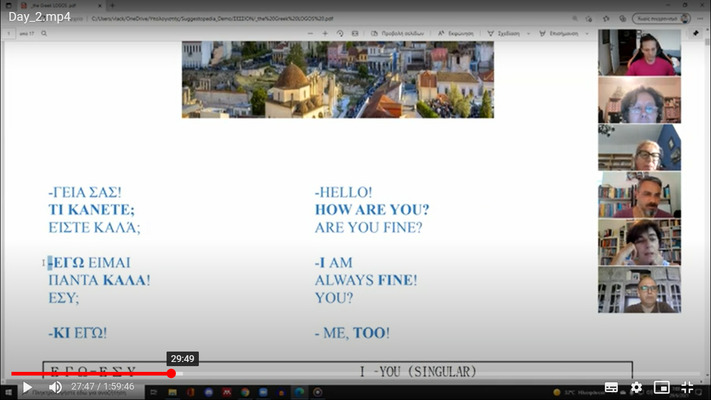
and in order to contextualise the forms of the new language in meaningful situations. 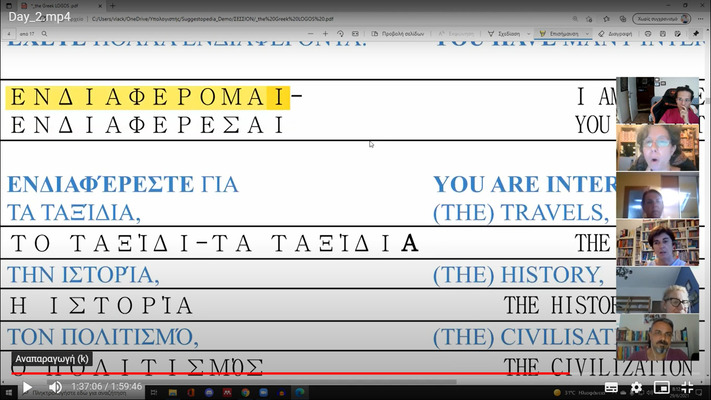
In between the communicative and the chorus reading of the text, there were moments to elaborate on some language forms and functions by playing didactic games - a Vocabulary matching game on Quizlet 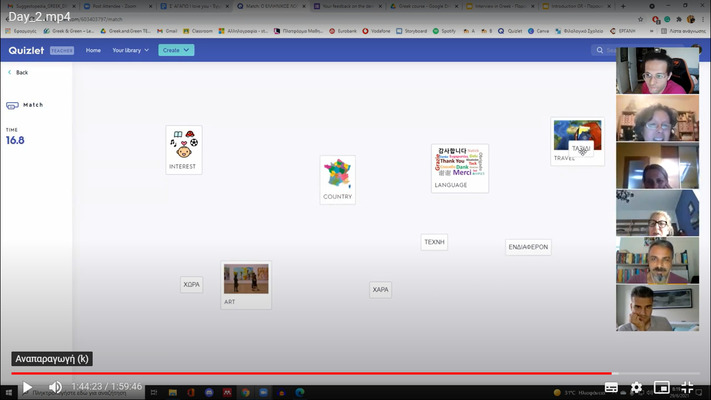

and singing didactic and authentic songs whereby matching vocabulary again!
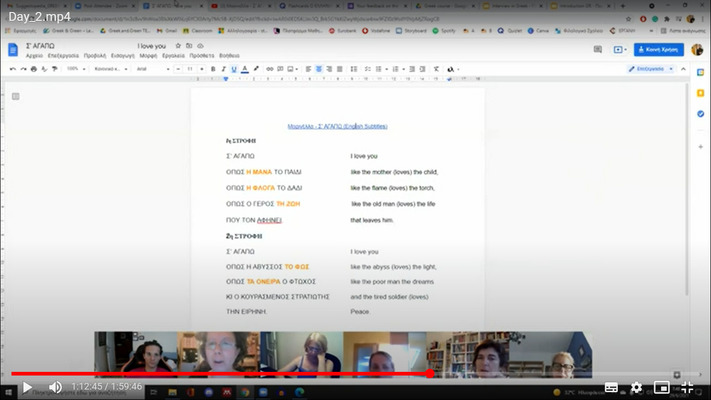 .
.
Last, there was an assessment activity for both the teachers and the learners to monitor their learning progress Interview in Greek. Without abandoning our scenario, the learners were free to use their real or newly created personality in order to answer the interview questions and be selected as actors and actresses in our cast.
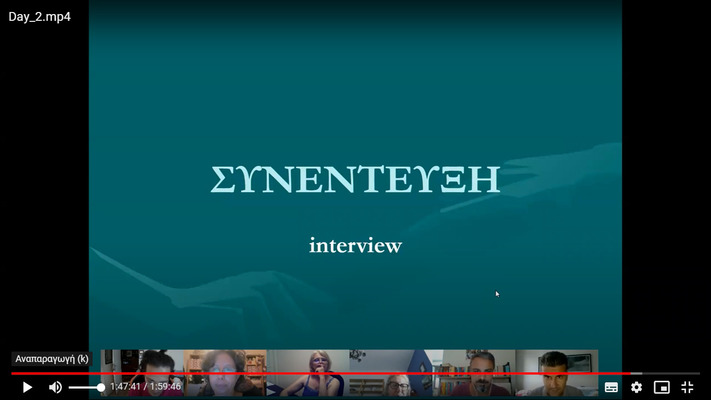
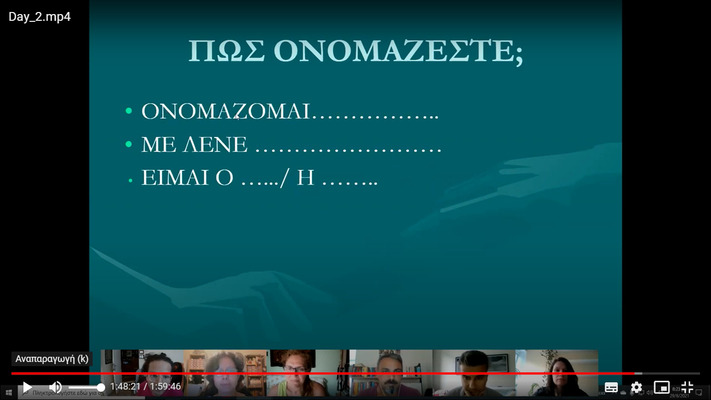
They could all answer the seven basic questions about their names, professions / studies, interests, families, talents and foreign languages.
After the experience, they were asked to respond to a questionnaire with their feedback. 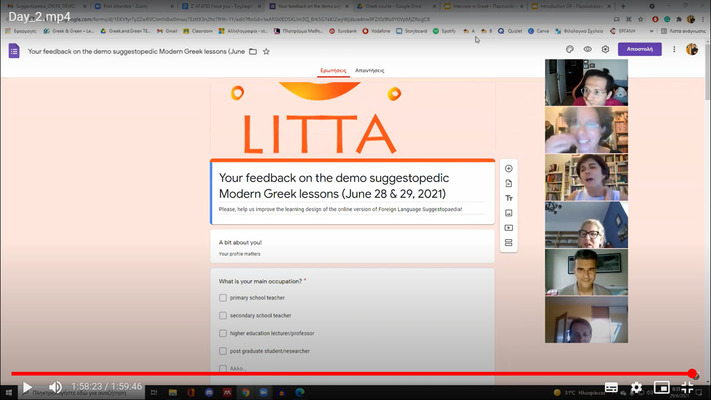
As for the learning outcomes, the responses of the first few participants are quite encouraging.
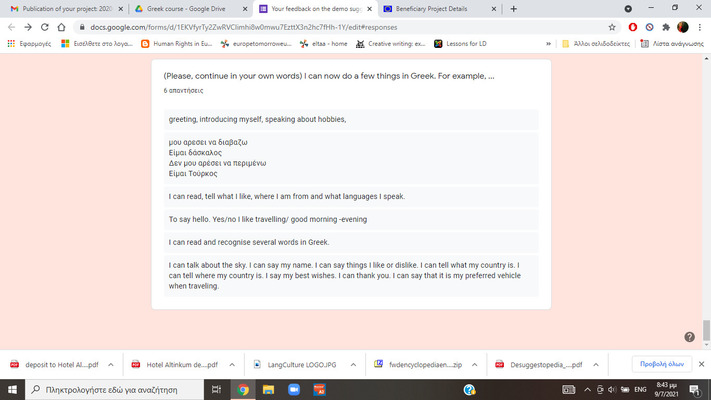
The responses to the sections about the methodology and the elements that the respondents consider implementing in their own teaching practice will be uploaded in a separate page here.